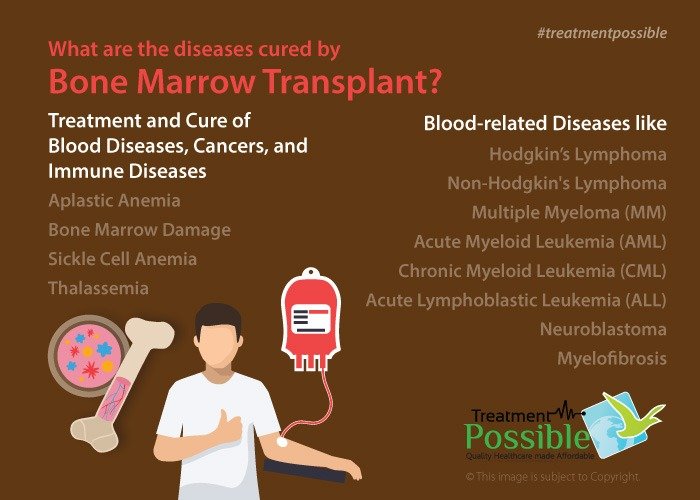What is Lymphoma?
Lymphoma is a blood cancer that affects the lymphatic system including your lymph nodes, spleen, and thymus gland. The lymph glands are organs of the immune system and part of the body’s defense against infection and disease. Lymph glands are located throughout the body. Lymphoma is the result of a mutation in the white blood cells which is called lymphocytes, and this causes uncontrolled growth of cancer cells that develop into malignant tumors in the lymph glands. The lymph system stores white blood cells to help your body fight infections.
Lymphoma originates in the lymph glands. Therefore, untreated or advanced lymphoma spreads throughout the lymphatic system and it can be life-threatening. Then the abnormal red blood cells crowd out resulting in anemia, and the abnormal white blood cells crowd out resulting in increased infections. The abnormal white blood cells formed in lymphoma could also accumulate in the organs such as the spleen, liver and kidney interfering with normal organ function.
How does Lymphoma Develop?
Lymphoma develops in people with weakened immune systems. This includes people taking immune-suppressing drugs for an organ transplant or people with HIV/AIDS.
What are the Types of Lymphoma?
There are two main types of lymphoma:
-
Hodgkin lymphoma (Hodgkin’s disease): This type of cancer is rare and, if caught at the right stage, is easier to treat and cure than aggressive forms of non-Hodgkin lymphoma. Hodgkin’s lymphoma starts in the immune cells called B lymphocytes (B cells). These cells produce proteins called antibodies that fight the disease. People with Hodgkin’s lymphoma have large lymphocytes called Reed-Sternberg cells in their lymph nodes.
-
Non-Hodgkin lymphoma: It is cancer which multiplies T-lymphocytes, B-lymphocytes or their cellular predecessors. It is one of the most common types of cancer and is life-threatening. Non-Hodgkin’s lymphoma occurs in a single lymph node, a group of lymph nodes, or an organ and can spread to any part of the body. Non-Hodgkin’s lymphoma is more common than Hodgkin’s lymphoma.
Request a Free Estimate

- Travel to India for Affordable and Advanced Healthcare
What are the Lymphoma Symptoms?
The Lymphoma symptoms may be fairly mild and it may look different in children than in adults. The common symptoms in children and adults may include the following:
- Bone and joint pain
- Easy bruising and bleeding
- Fatigue, weakness and malaise
- Fever
- Loss of appetite
- Night sweats
- Pale skin (pallor)
- Shortness of breath
- Slow healing of wounds
- Swollen lymph gland or glands (lymphadenopathy) often appear first in the neck, groin or armpit. The swollen glands may or may not be painful and it can also appear in other areas of the body.
- Anemia (reduced numbers of red blood)
- Unexpected weight loss
Lymphomas that have spread to the bone marrow reduce the number of platelet cells, which are needed for normal clotting. This will result in excessive bleeding from wounds.
What are the Risk factors for Lymphoma?
A number of factors increase your chances of developing lymphoma. The risk factors for lymphoma include:
- If you have a family history of lymphoma
- If you have Helicobacter pylori infection
- If you have Human T-cell lymphocytotropic virus (HTLV) infection
- If you have Mononucleosis or Epstein-Barr virus infection
- If you have weakened immune system, due to immune-suppressing drugs for an organ transplant or have HIV infection or AIDS.
How is Lymphoma Diagnosed?
A physician will use blood tests to look for abnormalities, including abnormal red and white blood cell counts. If you have enlarged lymph nodes, tissue sample or biopsy from the lymph node is taken to look for cancer cells.
If your physician suspects that lymphoma has spread or may be present in your bone marrow, they will suggest a bone marrow biopsy. This procedure is done under local anesthesia. A surgeon will extract bone marrow from the center of a bone, usually from the hip, using a long, fine needle. This will help them to identify the presence and type of lymphoma.
Your physician may also ask for an ultrasound, CT scan, PET scan, MRI to get an internal view of your chest, abdomen, or pelvis. These tests will help them to check for abnormal lymph nodes and tumors.
Want more clarification about medical expense & treatment plan?
Plan Your Lymphoma Treatment In India
Get a Free Doctor's OpinionWhatapp UsWhat are the Treatment Options for Lymphoma?
Lymphoma Treatment is best delivered by a team of specialists in lymphoma care. These specialists include hematology oncologists, hematologists, and registered nurses who are specialized in blood cancer and lymphoma care. Lymphoma treatment will depend on the type of lymphoma you have, the location, and how advanced it is. However, treatment for Lymphoma usually involves one or more of the following:
-
Chemotherapy and Radiotherapy are commonly used to treat many types of lymphoma. These treatments focus on killing cancer cells and reduce the size of tumors.
-
Bone Marrow Transplant may be used to replace the diseased bone marrow so that the body can produce the healthy blood cells it needs.
-
Surgery is recommended in rare cases and when the lymphoma has not spread and starts in body parts such as the spleen, stomach, or thyroid.
-
Targeted Therapy includes immunotherapy to bolster your own immune system to find and attack cancer cells.

What is the Outcome for Lymphoma?
The prognosis for lymphoma will vary depending on many factors, including the exact type of lymphoma and stage of the disease when diagnosed. In general, lymphoma is treatable and curable if detected in the early stages of the disease. Your outlook also depends on what type of lymphoma you have and how advanced it is at the time of diagnosis. The overall 5-year survival rate for NHL is 71 percent.
Our Services
From Treatment To Recovery, We Are Always There With You!

Medical Visa Letter
We provide a Medical visa letter for which we require the scanned passport copies of the patient and attendant.

Arrange An Appointment With A Surgeon
We arrange for the appointment with the surgeon, confirm for the hospital room and operation theatre (if required)

Post Surgery Follow Up
We help you to fix your telephonic appointment for future follow-ups

Complimentary Pickup
We arrange for complimentary pickup and drop services from the airport.

All The Necessary Arrangements
We arrange for hospital admission, forex exchange, sim card and local assistance

No Need To Worry About Essential Expenses!
We help in sorting out the hospital bill, return ticket, medicines and other essential purchases.


